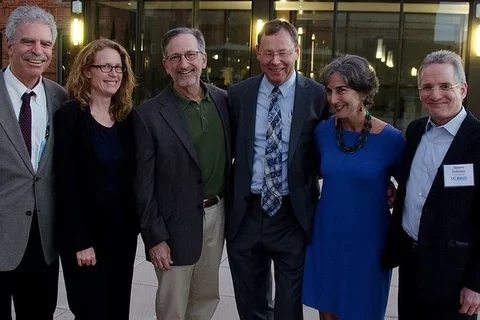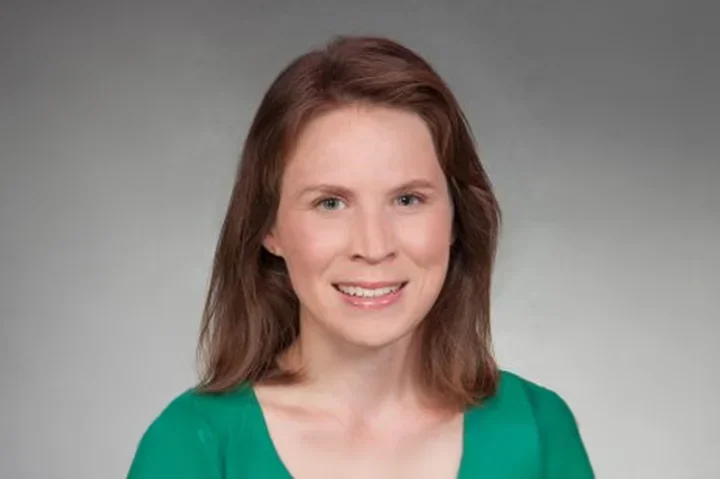UC BRAID explores transforming health care through a learning health system

Having built a powerful research network across five University of California medical campuses, the leaders of UC BRAID have a new vision: the integration of research and clinical care to create a learning health system.
At their annual retreat in October, UC BRAID leaders emphasized that a "learning health system" means more than doing research in a busy clinic. They envision using patient data--medical records, genetic information, demographics and other personal information--to transform health care, with an emphasis on value, quality and safety.
The goal, they said, is to harness data to improve care for every patient.
UC BRAID, which stands for University of California Biomedical Research Acceleration Integration & Development, is a network of the five UC medical campuses that have received Clinical and Translational Science Awards from the National Center for Advancing Translational Sciences. UC Davis, Irvine, Los Angeles, San Diego and San Francisco formed UC BRAID in 2010 to develop a shared infrastructure to accelerate research that improves health.
UC BRAID's accomplishments to date include:
- Building the UC Research Exchange (UC ReX), a federated clinical data warehouse that contains de-identified information from over 15 million patients
- Facilitating a UC-wide child health network focused on advancing research and clinical care
- Developing UC TrialQuest, a UC-wide database of IRB-approved clinical trials
Many of these efforts can be leveraged to support a learning health system.
"UC BRAID is poised to address some of the most important health issues of our time and to create public benefit for California and beyond," UC President Janet Napolitano said in video message to attendees.
UC BRAID's vision of a learning health system, she said, "points to the need for us to cross traditional boundaries and disciplines to achieve our goals. We must redefine how we engage with our patients, and how we use data and the vast expertise at UC to improve health."
During the two-day retreat at UCLA's Luskin Conference Center, UC BRAID leaders stressed that the success of a learning health system will depend on a strong spirit of collaboration between research and clinical teams, rooted in a commitment to improved patient care.
The learning health system has "the potential to transform health care delivery, utilizing the totality of temporal data from large patient populations to ultimately inform the personalized treatment of the patient in front of us," Dr. Steven Dubinett, director of the UCLA CTSI and incoming UC BRAID chair, said.
Dr. Michael Gould, director of health services research and implementation science at Kaiser Permanente Southern California, presented two case studies based on his work at Kaiser, which has been implementing a learning health system. The first was an analysis of strategies to prevent blood clots in hospitalized patients. The second looked at the evaluation of lung nodules detected on computerized tomography scans.
"Clinicians need tools--access to data in a way they can understand and manipulate," Gould said. "The idea is not to make everyone a researcher but to give clinicians access to information they need to do their job, and do it better, every day."
At the meeting, participants received updates on UC's progress in clinical informatics, including the recent agreement between UC Health and OptumLabs, and plans for the UC Clinical Data Warehouse. Several BRAID groups presented on their efforts and future plans.
Also discussed were ways to increase access to UC discoveries, with presentations on aligning the clinical research resources across the five campuses and opportunities for collaboration in participant recruitment.
Breakout sessions were devoted to four BRAID initiatives: participant recruitment, single IRB, contracting, and biobanking. Participants brainstormed opportunities to pursue in the coming year with an emphasis on developing common solutions to systemwide needs.
UC BRAID "is a system that works because everyone is committed to it," Dr. Lars Berglund, director of the UC Davis Clinical and Translational Science Center and outgoing chair of UC BRAID, said. "It will stay on the national horizon as a model that works for research and for patients."
More information:
Please click here to view the overview, presentations, and photos from the annual retreat.
Image caption: UC BRAID Leadership. From left: Dan Cooper (UC Irvine), Rachael Sak (UC BRAID), Gary Firestein (UC San Diego), Lars Berglund (UC Davis), Jennifer Grandis (UC San Francisco), Steven Dubinett (UCLA).
Image source:



